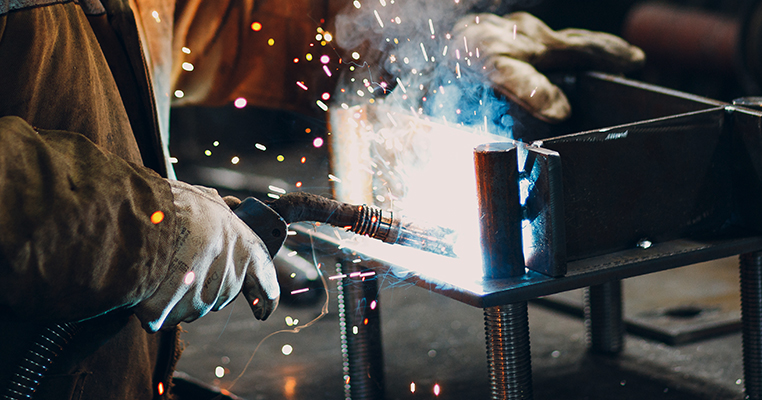The procedure of stud welding is a kind of arc welding that allows for the rapid end-joining of a metal work piece and a fastener. It is a comprehensive fastening system that makes use of a broad range of fasteners that may be put to literally thousands of different purposes. A single individual has the capability to securely secure each attachment on one side of the work item within a couple of seconds. It is quite a system and quite an advancement above previous approaches in many ways. Stud welding may reduce the amount of money you spend on materials and labor, enhance the look and structural dependability of your building, and provide you with far more design options.
Stud welding is often used for the purpose of joining thinner base metals to smaller diameter bolts. Welds may be produced with little distortion, burn-through, or darkening on the opposite side due to the rapid completion of the entire welding process within seconds.
Application of stud welding
Innovative and powerful technology since its beginnings, stud welding machines have undergone significant development in order to keep pace with the ever-changing needs of a wide variety of markets and applications. The history of stud welding machines is illustrative of the transformative potential of invention; from their inauspicious origins, these devices have become indispensable in a wide variety of industries, including construction, manufacturing, and more.
The use of stud welding has a wide variety of applications in many different fields. In the field of construction, it is often put to use for the purpose of joining steel studs to constructions made of concrete or steel in order to create a framework that is safe and reliable. When it comes to assembling body panels, brackets, and other components, automotive manufacturers depend on stud welding because it ensures the structural integrity and lifespan of their products. Stud welding is an essential technique in shipbuilding, since it is used to attach steel plates during the construction of hulls, decks, and bulkheads. This gives the boats the ability to survive the severe conditions of the shipping.
Examining the many elements that go into stud welding
When it comes to stud welding, having a solid grasp of the materials that are used is very necessary in order to achieve effective and dependable outcomes. The method of stud welding involves the use of many materials, all with a unique purpose and possessing particular characteristics that are exclusive to them.
1. The studs
In stud welding, the studs themselves are the most important components. They are obtainable in aextensivediversity of dimensions, types, and materials. Studs might be fabricated from a diverse range of materials, with the prevailing options being mild steel, stainless steel, and aluminium.
2. Ferrules
When it comes to stud welding, ferrules, also known as ceramic or insulator rings, are a very important component. Prior to commencing the welding procedure, it is necessary to place cylindrical ceramic rings round the base of the stud.
3. Consumables used for welding:
The process of stud welding requires the use of a variety of consumables in addition to the studs and ferrules itself. Welding fluidity, protecting gas, and spatter chemicals are some examples of these materials. In order to prevent oxidation and infection of the molten metal, welding flux is added to the area where welding is taking place.
4. Stainless stud
Because of the exceptional qualities they possess and the many roles they may play, studs made of stainless steel are a popular option across a variety of business sectors. Studs made of stainless steel are very resistant to corrosion, in addition to being extremely long-lasting and capable of withstanding hostile conditions without any difficulty.
Bottom Line
For the purpose of connecting metal components in a variety of applications, stud welding machine manufacturers provide a solution that is dependable and effective. You will be able to choose and operate a machine more wisely if you have a solid awareness of the different welding procedures, applications, and safety considerations. Stud welding has the potential to greatly increase both the pace and quality of your job, regardless of whether you are engaged in the fabrication of complicated components or a building project.

